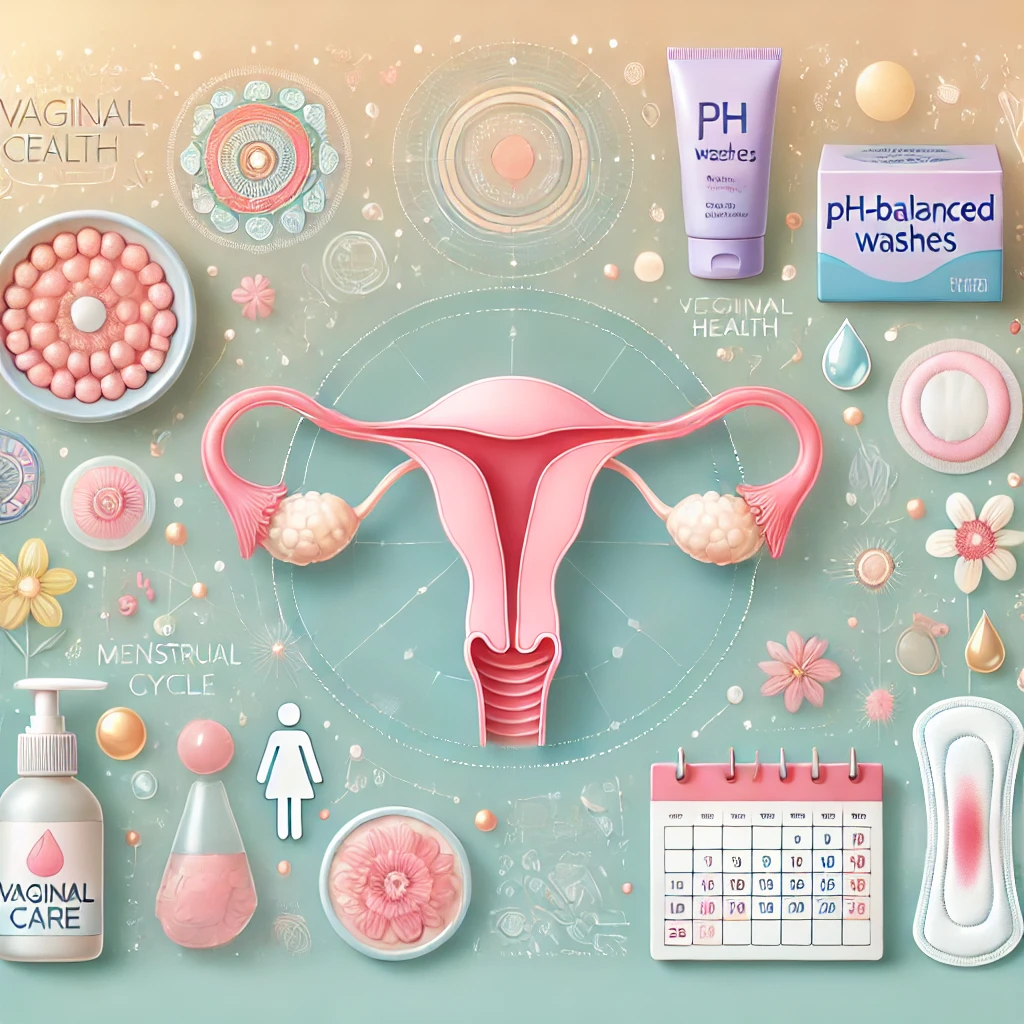
Understanding Menopause and Vaginal Health
Menopause is a natural phase in a woman’s life, typically occurring between the ages of 45 and 55, marking the end of menstrual cycles. During menopause, the body undergoes significant hormonal changes, particularly a decline in estrogen levels. This hormonal shift can have a profound impact on vaginal health during menopause, leading to symptoms like dryness, itching, and discomfort.
Common Vaginal Health Issues During Menopause
Many women experience vaginal health issues during this period due to decreased estrogen levels. Some of the most common issues include:
- Vaginal Dryness: Reduced estrogen can lead to less vaginal lubrication, causing dryness.
- Atrophic Vaginitis: Thinning and inflammation of the vaginal walls, which can cause pain and discomfort.
- Decreased Elasticity: The vaginal tissues may lose elasticity, making intercourse uncomfortable.
- Increased Risk of Infections: Changes in the vaginal environment can lead to an increased risk of urinary tract infections (UTIs) and vaginal infections.
Best Practices for Maintaining Vaginal Health
To manage these symptoms and maintain vaginal health during menopause, consider the following best practices:
1. Stay Hydrated
Staying well-hydrated is crucial for overall health and can help maintain vaginal moisture. Aim to drink at least 8-10 glasses of water a day. Hydration supports the mucous membranes, including those in the vaginal area, and can alleviate dryness.
2. Maintain a Balanced Diet
A balanced diet rich in vitamins and minerals is essential for maintaining vaginal health. Include foods high in:
- Omega-3 Fatty Acids: Found in fish like salmon and flaxseeds, these fats help maintain cell membranes and hydration.
- Phytoestrogens: These plant-based compounds mimic estrogen and are found in foods like soy, flaxseed, and tofu. They may help alleviate some menopausal symptoms.
- Probiotics: Found in yoghurt, kefir, and fermented foods, probiotics can help maintain a healthy balance of bacteria in the vagina, reducing the risk of infections.
3. Use Vaginal Moisturizers and Lubricants
Vaginal moisturizers can be used regularly to maintain moisture in vaginal tissues, while lubricants are beneficial during sexual activity to reduce discomfort. Opt for water-based or silicone-based lubricants to avoid irritation.
4. Practice Good Hygiene
Maintaining good hygiene is crucial for vaginal health, especially during menopause. Here are some tips:
- Use Mild, Unscented Products: Avoid harsh soaps and scented products that can irritate the vaginal area.
- Wear Breathable Cotton Underwear: This helps to keep the area dry and reduce the risk of infections.
- Avoid Douching: Douching can disrupt the natural balance of bacteria in the vagina, increasing the risk of infections.
5. Consider Hormone Replacement Therapy (HRT)
Hormone Replacement Therapy (HRT) can be an effective way to alleviate menopausal symptoms, including vaginal dryness and atrophic vaginitis. HRT involves taking estrogen or a combination of estrogen and progesterone to replenish the body’s hormone levels. However, HRT is not suitable for everyone, so consult your healthcare provider to discuss the risks and benefits. You can learn more about the types and benefits of HRT from the Mayo Clinic.
6. Stay Physically Active
Regular physical activity improves blood circulation, which can enhance vaginal health by promoting moisture and elasticity in the vaginal tissues. Aim for at least 150 minutes of moderate exercise per week, such as brisk walking, cycling, or swimming.
Natural Remedies to Support Vaginal Wellness
Some women prefer natural remedies to manage vaginal health during menopause. Popular options include:
- Coconut Oil: A natural moisturizer that can help relieve vaginal dryness.
- Aloe Vera Gel: Known for its soothing properties, aloe vera can be applied topically to alleviate itching and irritation.
- Vitamin E Supplements: Taking vitamin E supplements or using vitamin E oil can help improve vaginal moisture and reduce dryness.
When to Consult a Healthcare Professional
It’s essential to consult a healthcare professional if you experience severe symptoms or if over-the-counter treatments and lifestyle changes do not provide relief. Signs that you should seek medical advice include:
- Persistent or severe vaginal dryness and discomfort.
- Recurring urinary tract infections or vaginal infections.
- Pain during intercourse that does not improve with lubricants or moisturizers.
- Any unusual vaginal bleeding or spotting.
Conclusion
Maintaining vaginal hygiene and health during menstruation is crucial for comfort and well-being. By adopting these best practices—such as staying hydrated, maintaining a balanced diet, practising good hygiene, and considering treatments like HRT—you can effectively manage menopausal symptoms and support vaginal health. Remember, listening to your body and consulting a healthcare professional for personalized advice is important.
If you are curious and want to know MENOPAUSE in detail then read this article: 7 Powerful Signs of Perimenopause You Need to Recognize Early for a Healthier Transition
